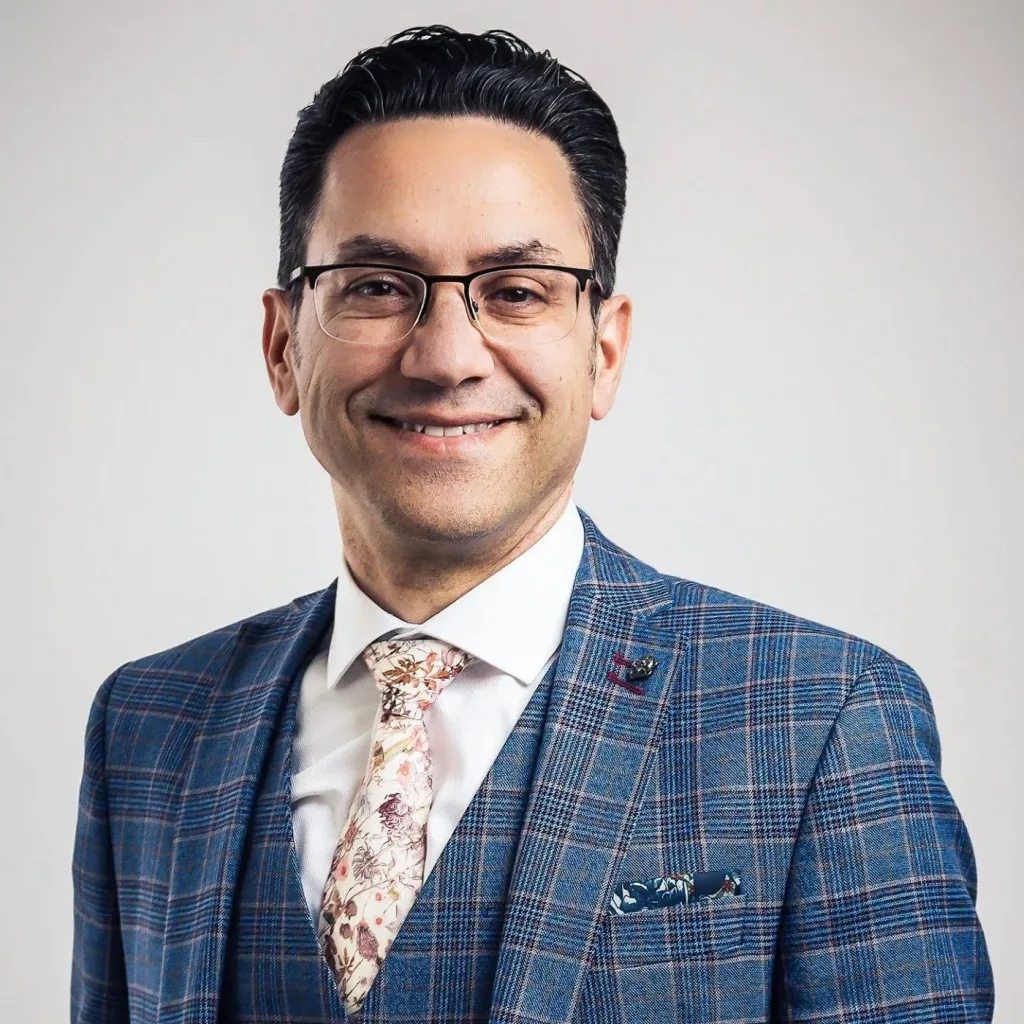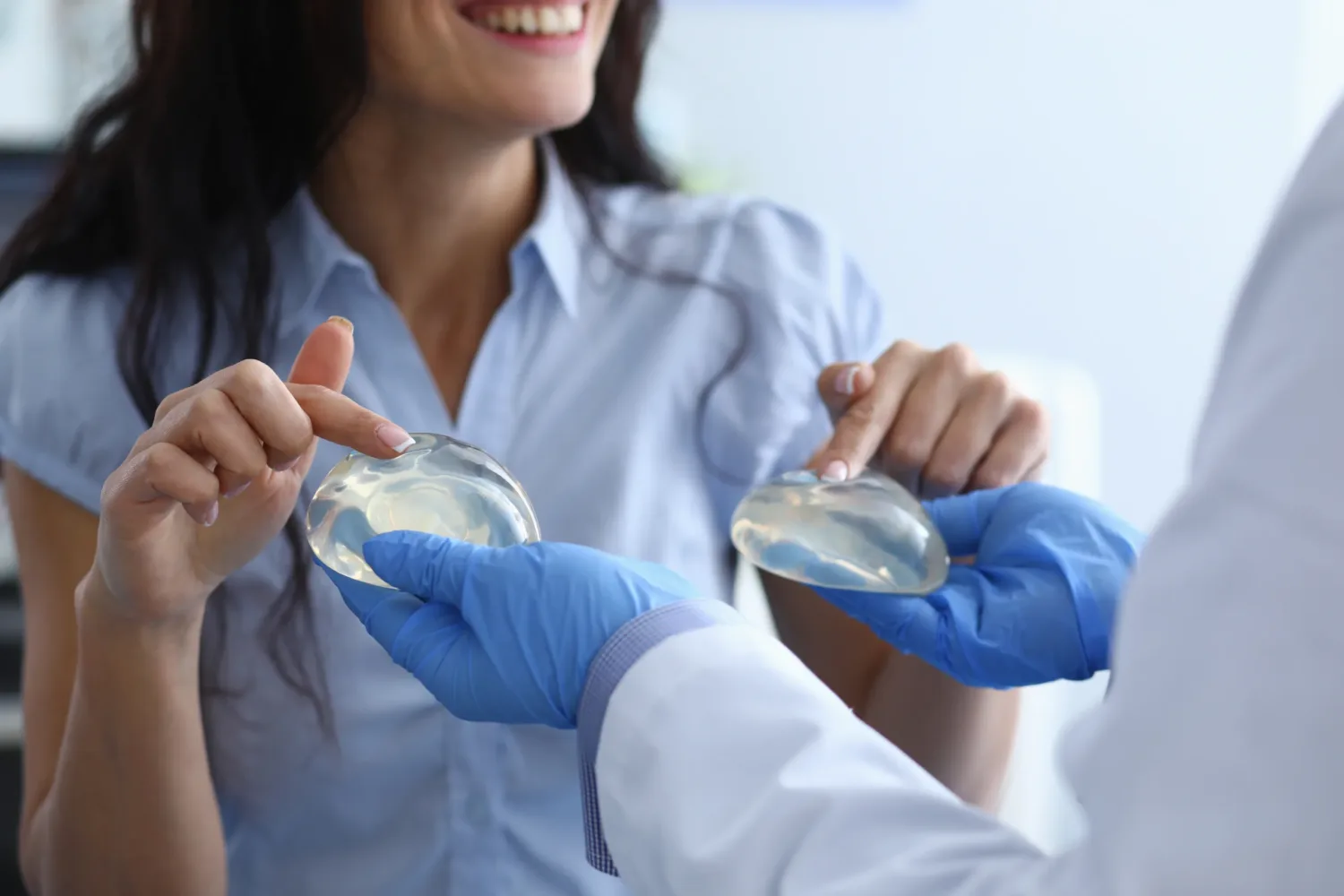Saggy breasts can be the result of ageing, genetics, or a host of behavioural habits that affect the strength and health of the skin. But to what extent do changes in weight result in saggy breasts?
This article explores the impact of weight loss on the breasts, focusing on sagging – its causes, preventative techniques, and the most effective long-term solutions.
The CREO Clinic’s Medical Director, Dr. Omar Tillo, is a specialist breast surgeon. Breast lift and breast augmentation can be transformative in the hands of the right surgeon. Dr. Tillo will use his skill and depth of expertise in breast procedures to assess your needs and work to provide you with the highest-quality outcomes.
Contact the CREO Clinic today to book an initial consultation with Dr Tillo and discover the many benefits breast surgeries can offer.
Why Do Breasts Sag After Weight Loss?
The main reason breasts sag after weight loss is a loss of elasticity in the ligaments within the breasts and of the skin itself. Weight gain expands the breasts, stretching the skin and ligaments – ageing causes further loss of elastin, meaning these supporting structures do not return when the weight is lost.
The lost elasticity of the skin and ligaments means the skin of the breast appears less firm and pulls downwards.
At What Age Can You Expect Saggy Breasts?
Women of any age can experience sagging breasts, but it is more common in older women, as the skin naturally loses elasticity as we age. However, it is important to remember that anybody who experiences sudden weight loss may find themselves with sagging breasts as a result.
Causes Of Saggy Breasts
There can be one or multiple potential reasons for sagging breasts. Here are some of the most common causes:
Genetics
In general, the shape and size of your breasts are mostly decided by your genes. If women in your family commonly have large or narrow breasts, you may be more susceptible to sagging.
Pregnancy
Pregnancy and breastfeeding often result in a drastic increase in the size of your breasts, and such rapid weight gain is often preceded by rapid weight loss – this stretches the skin and ligaments inside the breast and can lead to sagging. The effect can increase with every pregnancy.
Posture
If you have a stooped posture – something made more likely by having larger breasts – your breasts may hang lower and experience greater pull from gravity. This can lead to sagging over the long term.
Lack Of Support
A strong and supportive bra can reduce the pressure placed on the ligaments in your breasts, preventing them from becoming stretched. Strong support for your breasts is extremely important in situations that could place extra pressure on them, such as certain exercises like jogging or gymnastics.
Having A Higher BMI
As the breasts are made of mostly fatty tissue, a higher BMI is one of the strongest indicators that you will have large breasts. Larger breasts are much more likely to feel the effects of gravity and droop as you age. Significant weight loss also contributes to sagging breasts.
Poor Hydration
Maintaining good levels of hydration helps to provide your skin with everything it needs to maintain good levels of elasticity. If you tend not to keep yourself well hydrated, this can reduce your skin’s elasticity and increase sagging in the breasts.
Weight Fluctuation
One of the most common causes of sagging is fluctuation between weight gain and weight loss, particularly in older women with less elastin present to allow the skin to spring back into place. When the skin stretches and retracts without regaining previous elasticity, the result is that the skin of your breasts is no longer as pert and supple, giving a more limp, deflated appearance to the breast shape.
Bad Habits
There are some behavioural traits that can increase the likelihood of sagging breasts, such as:
- Going braless or wearing the wrong size bra – A lack of support for the skin of the breasts contributes to stretching the skin of the breasts
- Not wearing sunscreen – UV rays negatively impact levels of collagen in the skin, which can lead to sagging in the long term
- Smoking – Cigarette smoke (including second-hand smoke) leads to the breakdown of elastin and collagen fibres, which prevents your breasts from remaining firm and perky
- Not organising a balanced diet – A poor, imbalanced diet doesn’t allow your body to maximise levels of collagen production. Eating a balanced variety of nutritious foods allows your body to keep the skin healthy
How To Prevent Sagging Breasts
There are a few important steps you can follow to try to avoid sagging:
Kick Bad Habits
Try to build healthier habits into your life and lose the ones that could be making sagging worse. Quit smoking, keep as healthy a diet as possible, wear sunscreen, and buy a bra that fits you perfectly.
Improve Your Posture
To avoid stooping and increasing the likelihood of sagging, try to keep your back straight and develop the habit of keeping a strong, upright posture. Good posture will keep the breasts high and forward facing, helping to dampen the downward pull of gravity.
Provide Support During Exercise
During exercise that can create movement in the breasts, try to ensure you wear a sports bra or supportive bra that can take the weight off the ligaments in your breasts. This will provide greater comfort and also help to prevent sagging over the long term.
Build Muscle
One way to help prevent drooping of the breasts is to strengthen the pectoral muscles. This can work to keep the breasts higher and reduce some degree of sagging.
Will Your Breasts Get Perkier After Losing Weight?
While weight loss can reduce some degree of sagging, particularly in very large breasts, losing weight does not necessarily mean that your breasts will be perkier.
Losing weight does mean the breasts are likely to decrease in size, but the skin may not bounce back to its original position, which can cause sagging – this is especially true for older women who may have lost elasticity due to ageing.
Is There A Way To Lose Breast Fat Without Sagging?
It can be very difficult to lose breast fat without the skin of the breasts sagging as a result. Much of the severity of sagging will depend on your genetics and age – the skin struggles to recuperate elasticity as we get older. Exercises that train the pectoral muscles and a well-fitted bra can help, but generally, this will not be enough to prevent some sagging.
Some women may have more fibrous breasts than others, meaning more breast fat can be lost while the breasts maintain their firmness and structure, but a degree of sagging is inevitable for all women.
Ways To Fix Saggy Breasts After Weight Loss
There are a host of effective surgical techniques that can help to fix sagging breasts. Here are some of the most common surgeries people undergo to address sagging:
Breast Lift (Mastopexy)
A breast lift is a surgery designed to tighten up the skin of the breasts and lift them – it is one of the most frequently chosen surgeries for sagging breasts. There are a few different breast lift techniques that can be used depending on your needs.
Crescent Lift
For mild sagging, a crescent lift is often the most appropriate breast lift surgery. Dr. Tillo takes a crescent-shaped section of skin from just above the areola and then brings the two sides of the
resulting gap together, firming up the skin of the breasts. This technique should lift the nipple by approximately 2 cm.
Periareolar (Donut) Lift
For more moderate sagging, a periareolar lift consists of an incision around the full circumference of the areola, after which Dr. Tillo brings the resulting gap back together, thereby providing an uplift to the breast. This breast lift technique leaves minimal scarring that is well hidden by the contour of the areola and lifts the nipple by around 2-3 cm.
Vertical (Lollipop) Lift
For moderate sagging and more extensive shaping of the breast, a vertical lift may be the most appropriate breast lift surgery option. This makes an incision around the areola and then another vertical incision down to the breast fold, leaving a lollipop-shaped scar.
Inverted-T (Anchor) Lift
The inverted-T technique is designed to address the most severe sagging of the breasts. Three incisions are made: one around the areola, then vertically down to the breast fold, then an additional incision across the breast fold itself. This breast lift surgery can make significant alterations to the shape of the breasts but does leave more extensive scarring.
Breast Augmentation
To add volume to the breasts as well as additional perkiness, breast augmentation can be highly effective surgery. A more prominent, higher position on the chest can be a natural-looking solution to sagging. There are two main types of augmentation: saline implants and silicone gel implants.
Saline Implants
Saline implants are the original type of breast implants that add volume to the breasts and add perkiness. However, some patients find saline implants cannot provide the natural-looking contour they desire.
Silicone Gel Implants
The more modern of the two implant types, silicone gel implants offer augmentation that looks and feels natural – its gel is designed to mimic the feel of natural breasts. Many patients prefer the contour that silicone gel implants provide.
Fat Transfer Breast Augmentation
Another alternative to breast implants is augmentation via fat transfer. This has the dual benefits of improving the volume and contour of the breasts while also removing pockets of excess fat from different areas around the body – this is generally used for more modest breast enlargement of one cup size.
Composite Breast Augmentation
Composite breast augmentation is a breast augmentation procedure that combines both implants and fat transfer to improve the size, shape, and symmetry of your breasts. This is an excellent procedure for providing volume and contour to breasts that have begun to sag due to weight loss or decreased collagen in the skin.
This advanced method of breast augmentation uses transferred fatty tissue to create breasts with a natural feel and allows Dr. Tillo to sculpt a ‘teardrop’ appearance – a desirable aesthetic shape that presents very naturally.
FAQs
Who’s a good candidate for breast surgery?
Any adult with a desire to reduce sagging in their breasts can be a good candidate for breast lift surgery. However, the CREO Clinic does have some important criteria for an ideal candidate:nn- Must be in good psychological and physical healthn- Must have a BMI of 30 or below (use our BMI checker to check your current BMI)n- Must have realistic expectations of the outcomes of their breast surgeryn- Should be looking to improve the perkiness (of the breastsn
Is breast surgery the only way to fix saggy breasts?
Once the skin of the breasts and the ligaments and connective tissue within the breasts have stretched and become less elastic, it can be extremely difficult to restore them to their previous condition. This is why a breast lift is often the most effective way to permanently deal with saggy breasts.
What are the benefits of breast surgery?
A breast lift can have many different benefits depending on the type of surgery you choose. Breast lift benefits and breast augmentation benefits can be different, but both provide some overlapping advantages.nnBreast surgeries can help you feel more at home with the shape and size of your breasts, as well as address sagging brought on by ageing, drastic weight loss, or genetics.n
How much does breast surgery cost?
At the CREO Clinic, breast lifts begin from £8,500, whereas breast augmentation starts from £6,900. A breast composite augmentation (breast implants and fat transfer) begins from £10,900.nnAs all procedures at the CREO Clinic are bespoke to your needs, a full cost breakdown can only be provided after your initial consultation.nnShould you wish to pay the cost of your breast lift over multiple instalments, our financing partner, Chrysalis Finance, provides 0% APR loans for the full cost of your surgery to be paid over 12 months. Payment over more instalments is available at varying rates.
Contact CREO Clinic Today To Schedule A Consultation And Learn More
To book a consultation with Dr. Tillo, contact the CREO Clinic today to help understand how you can reduce sagging in your breasts through breast surgery.
Our expert breast surgeon, Dr. Omar Tillo, has performed countless successful breast lift surgeries over his career, so you can feel safe in the hands of a skilled and highly experienced practitioner.







